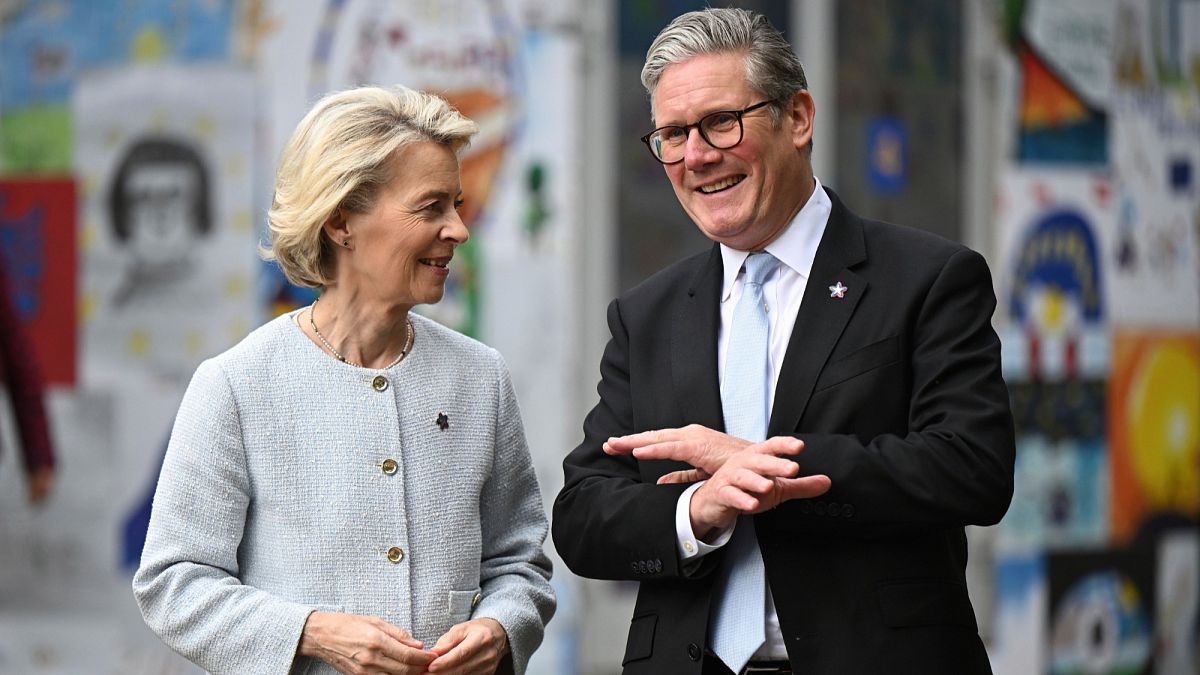Brussels and London on Monday agreed new deals on fishing, energy, youth mobility and defence following marathon talks that concluded just a few hours before the first-ever EU-UK summit was to be held.
British Prime Minister Keir Starmer, European Commission president Ursula von der Leyen, and European Council chief Antonio Costa are set to agree on three documents: a joint statement where they set out common ground on key geopolitical challenges, a security and defence partnership, and a Common Understanding.
For both sides, the summit was initially aimed at showing just how closely aligned on key global issues they are at a time when the post-war multilateral world order is being attacked by Moscow, Beijing, and now increasingly Washington.
But the spectre of Brexit quickly loomed large with bilateral and sectoral issues taking talks to the wire and risking to turn this summit into a damp squib. On the one side, the EU stuck to its position that nothing is agreed until everything is agreed, while on the other, Britain’s Labour government had to contend with bruising local elections where Brexiteer Nigel Farage’s Reform Party performed well.
The Common Understanding, which sets out the parametres of the relationships over a number of bilateral issues including thorny ones such as fishing rights, Sanitary and Phytosanitary rules (SPS), and youth mobility, was therefore the hardest to thrash out, with negotiations continuing overnight on Sunday.
Politically, the hardest domestic sell for host Keir Starmer, are a 12-year extension of full reciprocal access to waters to fish and the European Court of Justice having jurisdiction over SPS matters.
The current fishing rules are set to expire in June 2026 and numbers that had been floated before the deal was finalised hovered around a five-year extension.
British Business Secretary Jonathan Reynolds insisted on Monday morning that the government hadn’t sacrificed fishing for closer alignment on other issues, stressing that access to the EU market for the UK fishing industry “is fundamental”.
“We need some certainty in place, you don’t want things on an annual basis,” he also told BBC radio.
Both sides were keen to stress that the package is ambitious, balanced and crucially did not cross any red lines they both had going into the talks.
An EU official said, for instance, that the summit “shows that we have entered a new chapter in our relations with UK – a neighbour, an ally and a global partner” and that “we are turning a page and moving towards a new strategic partnership”.
“The negotiation process in the run-up to this summit went until the last minute. But negotiations took place always in good faith on both sides, and the result is very positive for both,” the official added.
This good faith will need to continue as both sides will have to return to the negotiating table quickly to formalise the sectoral deals included in the Common Understanding with legal agreements.
The same applies to the security and defence cooperation as the partnership struck on Monday does not yet allow the UK to take part in the EU’s €150 billion SAFE programme to boost joint procurement. How much the UK will need to contribute to the EU budget to take part, for instance, has yet to be defined.
The instrument, part of the EU’s Readiness 2030 plan to strengthen the bloc’s defence sector and capabilities, includes a so-called European preference under which some 65% of the weapon systems bought must be made in the EU or in third countries with which it has agreements in place. This currently excludes the UK and its defence manufacturers.
Read the full article here


